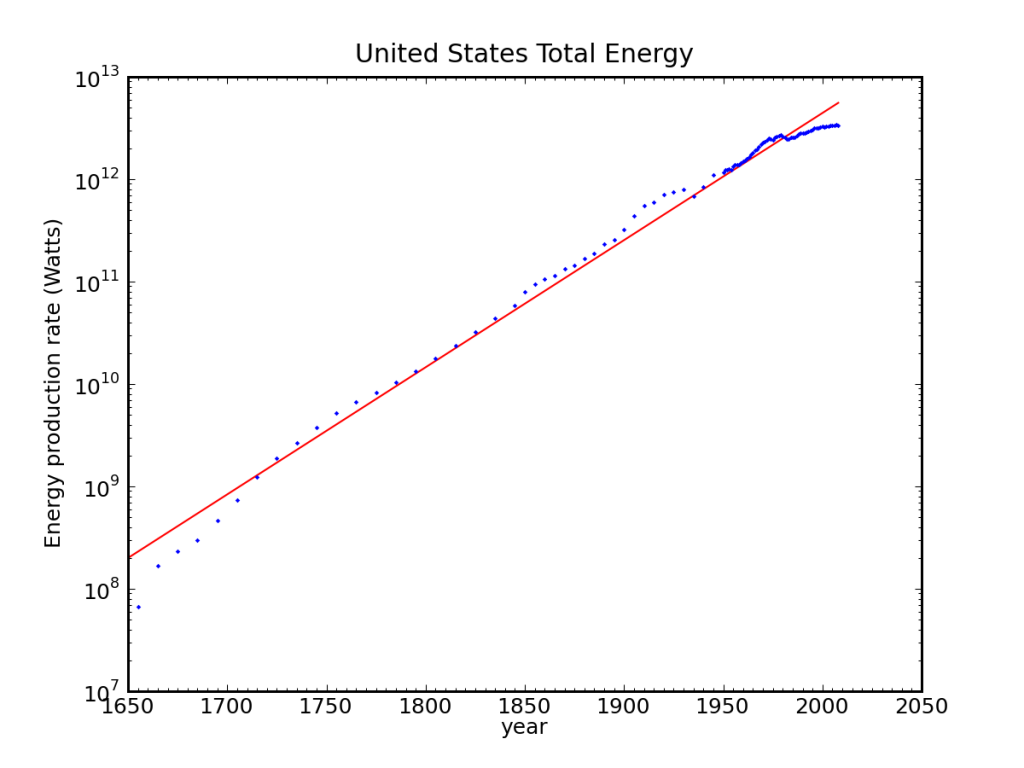"The main lesson for me is that growth is not a “good quantum number,” as physicists will say: it’s not an invariant of our world. Cling to it at your own peril"
By Tom Murphy
By Tom Murphy
Exponential Economist Meets Finite Physicist
Some while back, I found myself sitting next to an accomplished economics professor at a dinner event. Shortly after pleasantries, I said to him, “economic growth cannot continue indefinitely,” just to see where things would go. It was a lively and informative conversation. I was somewhat alarmed by the disconnect between economic theory and physical constraints—not for the first time, but here it was up-close and personal. Though my memory is not keen enough to recount our conversation verbatim, I thought I would at least try to capture the key points and convey the essence of the tennis match—with some entertainment value thrown in.
Cast of characters: Physicist, played by me; Economist, played by an established economics professor from a prestigious institution. Scene: banquet dinner, played in four acts (courses).

Note: because I have a better retention of my own thoughts than those of my conversational companion, this recreation is lopsided to represent my own points/words. So while it may look like a physicist-dominated conversation, this is more an artifact of my own recall capabilities. I also should say that the other people at our table were not paying attention to our conversation, so I don’t know what makes me think this will be interesting to readers if it wasn’t even interesting enough to others at the table! But here goes…
Act One: Bread and Butter
Physicist: Hi, I’m Tom. I’m a physicist.
Economist: Hi Tom, I’m [ahem..cough]. I’m an economist.
Physicist: Hey, that’s great. I’ve been thinking a bit about growth and want to run an idea by you. I claim that economic growth cannot continue indefinitely.
Economist: [chokes on bread crumb] Did I hear you right? Did you say that growth can not continue forever?
LEARN MORE
MIT LIMITS TO GROWTH
